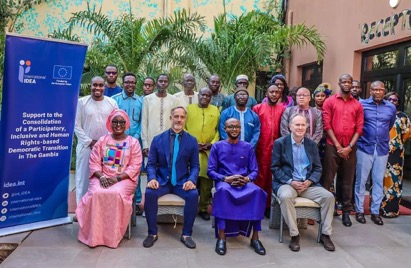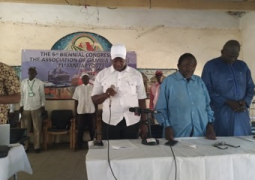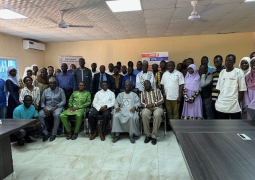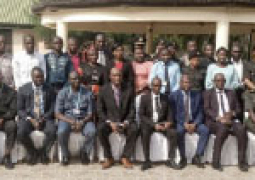
Facilitated by International IDEA with funding by the European Union in The Gambia, the training also forms part of the EU-funded Consolidation of Democratic Dispensation (CODE) project, which has also supported the development of the National Assembly’s four-year Strategic and Investment Plan and three-year Communications Strategy.
At the event, Kalipha M.M. Mbye, Clerk of the National Assembly, underscored the significance of communication in bridging the gap between the legislature and the public.
“Capacity building is key to honouring our social contract with the people. A well-structured communications framework will ensure the public understands the purpose of legislation and feels empowered to contribute to the process.”
Clerk Mbye encouraged participants to apply new strategies in their daily work and explore avenues for innovation.
He equally reaffirmed his open-door policy for staff seeking further development opportunities and urged International IDEA to continue providing mentorship and technical support.
“Public access to Parliament has never been greater, yet alienation from democratic processes persists,” he noted. “This training equips us to reverse that trend by delivering targeted, relatable messaging across all media.”
Mrs. Jainaba Faye, Head of International IDEA’s Gambia Office, highlighted the urgency of adapting to evolving media landscapes.
“Your role is not just supportive, it is central to effective governance. Digital skills are no longer optional; they are essential to making legislative processes accessible.”
She observed that the communications strategy aims to bridge the gap between the legislature and the public, improve communications and flow of information within the National Assembly as well as with its valued stakeholders.
The strategy, she added, was developed within the framework of creating awareness about the national assembly and its functions, promoting positive change in perception, beliefs, behaviors and attitudes towards the national assembly and most importantly, projecting the national assembly as a trustworthy and transparent institution.
Raphaël Brigandi, Deputy Head of the EU Delegation to The Gambia, reinforced this message, emphasising that effective communication is the heartbeat of policymaking.
He commended the National Assembly’s commitment to fostering transparency, highlighting that the EU’s support aligns with shared democratic values.





